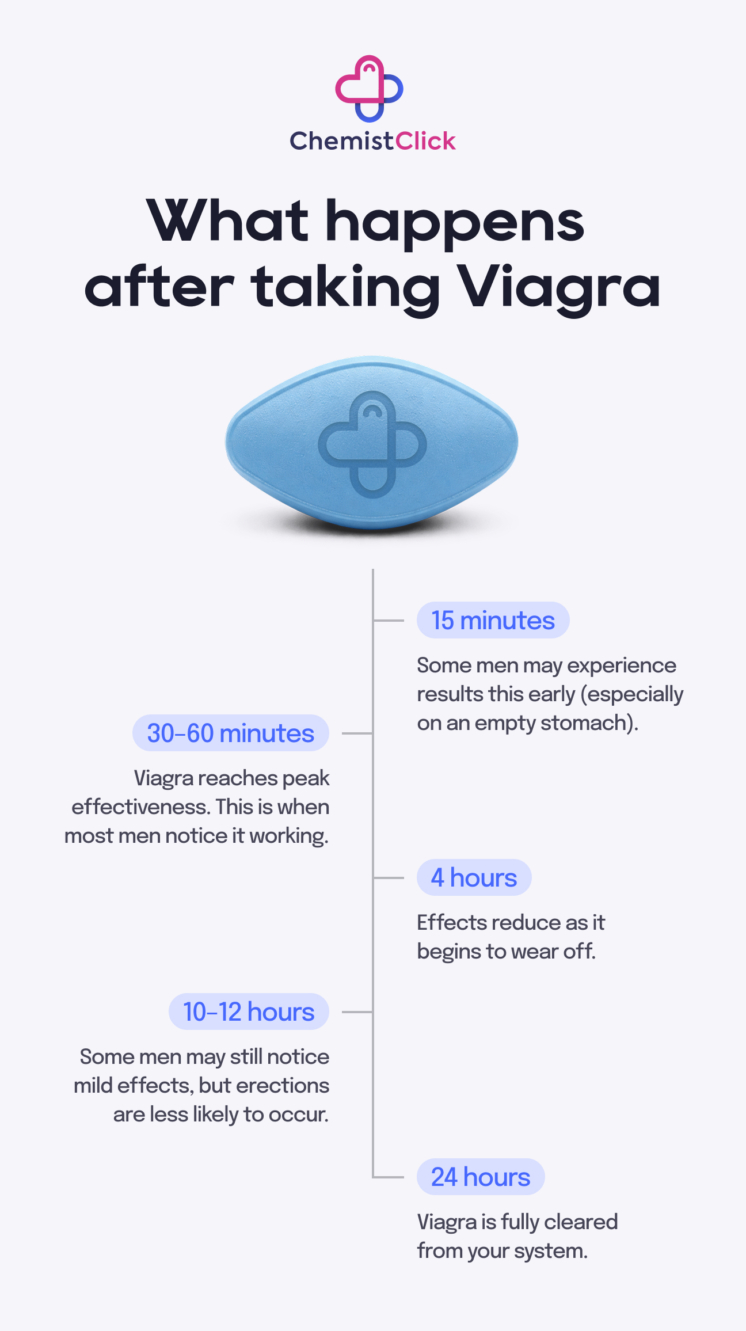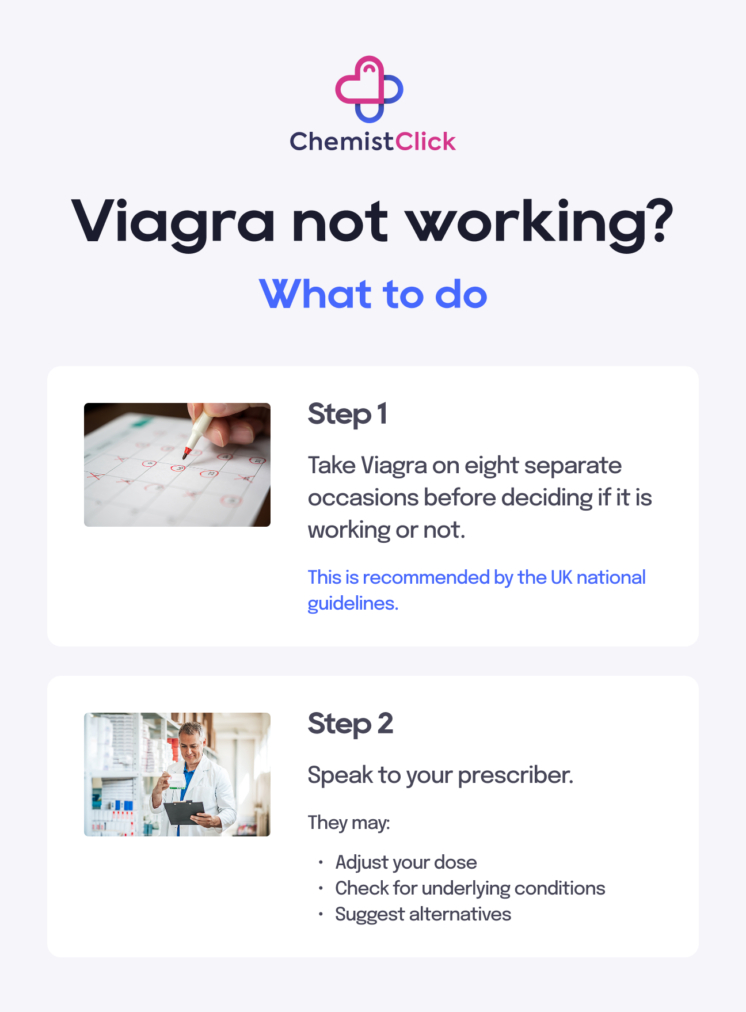The guidance below explains how to use Viagra for best results.
1. Make sure Viagra is safe for you to take
Viagra is safe and effective for most men, with minimal side effects when used correctly. Since becoming available over the counter in 2019, it has been widely used across the UK.
However, Viagra is not suitable for everyone. You should avoid it if you take nitrate-based medicines (often prescribed for chest pain or heart problems), or if you have certain medical conditions such as severe heart or liver disease.
If you’re unsure whether Viagra is suitable for you, consult a doctor or pharmacist before taking it.
2. It may not work the first time
Viagra may not work the first time you take it.
Factors such as stress, anxiety, alcohol, or heavy meals can all affect its absorption and effectiveness.
Most men find that Viagra works best after trying it a few times, with consistent timing and correct use.
3. You need to be sexually aroused
Viagra doesn’t automatically cause an erection. It only helps when you’re sexually stimulated.
When you’re aroused, your body releases a chemical called cGMP, which relaxes blood vessels in the penis and increases blood flow, allowing you to get and maintain an erection.
4. Viagra will not change the size of your penis
There are common myths about Viagra increasing penis size. However, this is not true.
Viagra will:
- Help men with ED achieve and maintain an erection during sex
Viagra will not:
- Permanently increase penis size
- Delay ejaculation if you have premature ejaculation
The effects of Viagra usually last for up to 4 hours. Take it 30-60 minutes before sexual activity.
5. Take Viagra on an empty stomach
A heavy or fatty meal can delay Viagra absorption and reduce its effectiveness.
For best results, take Viagra on an empty stomach or after a light meal, and avoid taking it right after eating.
6. Avoid excess alcohol
Alcohol can reduce blood flow to the penis, working against Viagra. It can also worsen side effects such as dizziness and flushing.
If alcohol helps you relax, limit yourself to one or two units for the best results.
Further reading: Viagra and Alcohol
7. Use the correct dose
The usual starting dose is 50mg, taken about an hour before sex.
If you experience side effects, try lowering it to 25mg.
If 50mg isn’t effective and you have no side effects, your doctor may increase your dose to 100mg.
Always speak to a healthcare professional before changing your dose.
8. Time your dose correctly
Take Viagra around one hour before sex.
If taken too early, its peak effects may fade; if taken too late, there may not be enough time for it to reach effective levels in your bloodstream.
9. Check for underlying health conditions
Conditions such as diabetes, heart disease, or high blood pressure can impact your ability to get an erection.
Hormonal issues like low testosterone or thyroid imbalances may also play a role.
Addressing these with your doctor can improve your response to Viagra and your overall health.
10. Manage stress and performance anxiety
Anxiety can block sexual arousal and reduce the effectiveness of Viagra.
For men with performance anxiety, Viagra can help by building confidence and easing worry.
Practising relaxation and focusing on enjoyment can further enhance results.
11. Purchase Viagra from reputable sources
Only purchase Viagra from registered UK pharmacies.
You can check a website’s registration on the General Pharmaceutical Council (GPhC) register.
Avoid unverified online sellers offering cheap or “alternative” Viagra (such as Kamagra). These may be counterfeit or unsafe.





